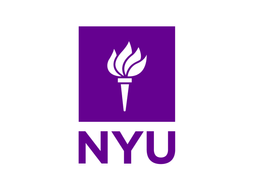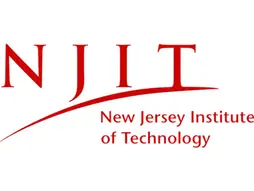Embry–Riddle Summer Camps - Pros and Cons You Should Know About
In today's competitive educational landscape, getting hands-on experience can really bolster your profile. College admissions officers are always on the lookout for students who go the extra mile. With their competitive admission and the practical experience they offer, specialized programs for high schoolers are the perfect way to do this. Participating in such a program will not just add to your resume but enhance your skills and understanding of a subject, which can go a long way.
For aspiring aeronautical engineers, such programs can enhance your understanding of flight, engineering, and aviation. With the aviation and aerospace industry continually evolving, a suitable high school program can give you an experience that extends beyond textbooks and lectures.
In this blog, we will cover all you need to know about the Embry-Riddle Summer Camps, its dates, eligibility, and costs, as well as our review on whether you should do it.
What are the Embry-Riddle Summer Camps?
Embry-Riddle Aeronautical University’s summer camps provide a unique platform for students to immerse themselves in a number of STEM fields, experience hands-on learning, and engage with like-minded peers. With various camp options tailored to different age groups and areas of interest, Embry-Riddle summer camps not only offer an introduction to the field but also a chance to build a solid foundation for future pursuits. When it comes to aeronautics and aviation education, the university is well-reputed so it would be best to pay more attention to the camps in those fields.
Who is eligible to apply?
Camps that involve taking a flight require the students to have proof of citizenship. International students will be permitted to take part in flight programs but won’t be allowed to log their flight hours.
Program Structure
The Embry-Riddle Summer Camps are designed to provide hands-on learning experiences for students interested in science, technology, engineering, and mathematics (STEM) disciplines. The camps cover various broad areas of study for you to choose from, including flight, engineering, robotics, space, athletics and safety, security, and intelligence.
Here are some of the program’s general details:
Application deadline: Registration for the camps usually opens in January.
Program dates: All camps take place in the month of June and/or July.
Location: Embry-Riddle’s Daytona Beach campus in Florida or Prescott Campus in Arizona
Financial assistance: Scholarships are available for specific camps
As for the camps, here are three broad types of camps available:
1. Overnight Camps
Embry-Riddle's overnight camp offers an immersive 24/7 experience in aviation education. Participants reside on campus and get a taste of life at the university while learning about their chosen field and building connections.
Who is it for?
These camps are primarily geared towards high school students who are looking for an immersive program and want to experience life as a college student.
2. Day Camps
Day camps are commuter programs where students do not get the opportunity to live on campus. They usually run from Monday to Thursday, with the daily schedule running from 8.30 am to 4.30 pm.
Who is it for?
Most day camps are for students between the ages of 7 and 12 and are not geared towards high school students. This is ideal for those who are living around the university’s location and for those who wish to avoid the extra costs of a residential program.
3. Sports Camps/Athletics
These camps are for students interested in athletics, who want to learn sports from the university's coaches. A wide range, including basketball, baseball, soccer, tennis, and more, are covered at one or more of the university's seven sports areas.
Who is it for?
This is specifically for students who are interested in sports and want to be trained by experienced faculty members.
How much does it cost?
The cost varies with each camp, the lower range being around $1,000 and the more expensive ones going up to $9,500. Scholarships are camp-specific and may or may not be available, depending on your choice.
Another thing you might want to keep in mind is the opportunity to win a $1,000 grant for those who want to continue studying at the university. If you complete a six-day residential Embry-Riddle Daytona Beach Summer Program and enroll as a full-time college student at Embry-Riddle’s Daytona Beach campus, you are eligible to receive this $1,000 grant.
Are Embry–Riddle Summer Camps prestigious?
While Embry-Riddle Aeronautical University is well-known for its undergraduate aviation programs, its summer camps are not quite as prestigious. Moreover, the camps require a substantial financial commitment and there is no funding provided by other notable organizations. The program’s selectivity then is primarily down to the high fees and not a high standard of academic achievement.
It is true that the summer camps provide valuable hands-on experience and insights into aviation and aeronautics. However, it's worth noting that simply attending one of these programs might not significantly boost your application on its own. Instead, it will be most lucrative if you use the concepts you’ve learned to develop your own research or project.
It requires you to pay thousands of dollars, which does take away quite a lot of selectivity from the camps’ application process.
Embry Riddle is a popular university and a prestigious one for its aviation courses at the undergraduate level, but its summer programs aren't all that prestigious.
Conducting research using the concepts learnt at camp is a good way to demonstrate impact, but simply attending the program won't add much to your application.
Pros and cons of the camps
Pros:
Expert Instruction: You will receive guidance from faculty members and experienced professionals, even astronauts and NASA officials. Combined with Embry-Riddle's facilities and resources, the program offers a conducive learning environment.
Hands-on Learning: Through the camps’ emphasis on practical activities, you will receive hands-on experience that goes beyond textbooks. The aviation and aerospace programs in particular offer valuable experience such as operating the same software used by the Federal Aviation Administration and flying an actual aircraft. Other examples include 3D printing parts of a vehicle or constructing a robot and making it play tug-of-war.
Qualifications and Other Benefits: Some camps will provide you with a pathway to aviation certification, including private pilot's licenses. Through others, you will have the opportunity to earn college credits, opening doors to future educational achievements.
Networking Opportunities: Camps bring together like-minded peers. No matter which area of study you choose, you will foster valuable friendships as well as connections with people from the industry.
Cons:
Cost: You might find that participation in these specialized programs can be expensive, particularly as the most popular programs are the overnight ones that include residential fees. Additionally, there are very limited scholarships available.
Intensity: If you’re still exploring your interest in aeronautics or related subjects, the immersive nature of these camps can become overwhelming. This program is best suited for those who know they want to pursue this field.
Limited Availability: Students are accepted on a first-come-first-serve basis and camp slots are limited. If you do apply, it’s best to do it early.
Location: Since the programs for high school students are primarily overnight camps, you could be faced with logistical challenges. As a participant, you would need to completely relocate for the period of the program and make your own travel arrangements.
Our Review
Embry-Riddle summer camps are generally considered beneficial programs for high school students particularly due to the emphasis on hands-on experience. With the university’s reputation in aviation, aeronautics, aerospace engineering, and related disciplines, it is the camps in those areas of study that are bound to be the most valuable.
That said, while Embry-Riddle's summer programs are well-known within their niche of aviation and aerospace, other programs like those from MIT come with higher prestige and recognition. It’d be well worth your time to check those out.
In the end, the Embry-Riddle Summer Camps are best suited for those who are specifically interested in aeronautics and aviation, and aim to pursue it as a career. Anyone with broader interests should look at a different program.
Further, these camps are suited for students whose guardians can meet the high costs. Only those who plan to enroll at Embry-Riddle as college students will be eligible for a $1,000 grant.
Embry-Riddle summer camps are generally considered beneficial programs for high school students particularly due to the emphasis on hands-on experience. With the university’s reputation in aviation, aeronautics, aerospace engineering, and related disciplines, it is the camps in those areas of study that are bound to be the most valuable.
Further, these camps are suited for students whose guardians can meet the high costs. Only those who plan to enroll at Embry-Riddle as college students will be eligible for a $1,000 grant.
In the end, the Embry-Riddle Summer Camps are best suited for those who are specifically pursuing aeronautics and aviation as a career. Anyone with broader interests should look at a different program.
Other programs, like NASA's High School Aerospace Scholars, may hold broader prestige and recognition across a wider academic spectrum. You can also consider research opportunities in aerospace engineering!
If you're looking for a real-world internship that can help boost your resume while applying to college, we recommend Ladder Internships!
Ladder Internships is a selective program equipping students with virtual internship experiences at startups and nonprofits around the world!
The startups range across a variety of industries, and each student can select which field they would most love to deep dive into. This is also a great opportunity for students to explore areas they think they might be interested in, and better understand professional career opportunities in those areas.
The startups are based all across the world, with the majority being in the United States, Asia and then Europe and the UK.
The fields include technology, machine learning and AI, finance, environmental science and sustainability, business and marketing, healthcare and medicine, media and journalism and more.
You can explore all the options here on their application form. As part of their internship, each student will work on a real-world project that is of genuine need to the startup they are working with, and present their work at the end of their internship. In addition to working closely with their manager from the startup, each intern will also work with a Ladder Coach throughout their internship.
Additionally, you can also work on independent research in AI, through Veritas AI's Fellowship Program!
Veritas AI focuses on providing high school students who are passionate about the field of AI a suitable environment to explore their interests. The programs include collaborative learning, project development, and 1-on-1 mentorship.
The AI Fellowship program will have students pursue their own independent AI research project. Students work on their own individual research projects over a period of 12-15 weeks and can opt to combine AI with any other field of interest. In the past, students have worked on research papers in the field of AI & medicine, AI & finance, AI & environmental science, AI & education, and more! You can find examples of previous projects here.
One other option – Lumiere Research Scholar Program
If you are passionate about research in aviation and aerospace engineering, you could also consider applying to the Lumiere Research Scholar Program, a selective online high school program for students I founded with researchers at Harvard and Oxford. Last year, we had over 4000 students apply for 500 spots in the program! You can find the application form here.
Stephen is one of the founders of Lumiere and a Harvard College graduate. He founded Lumiere as a PhD student at Harvard Business School. Lumiere is a selective research program where students work 1-1 with a research mentor to develop an independent research paper.
Image Source: ERAU logo












